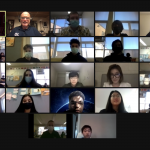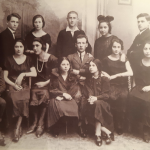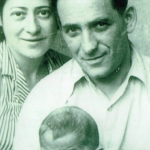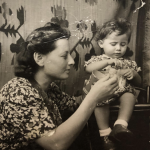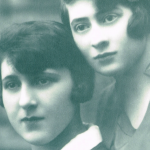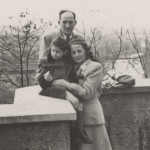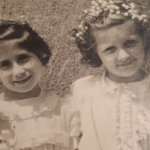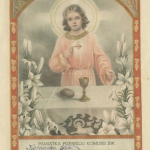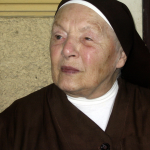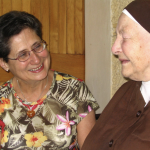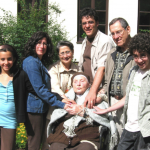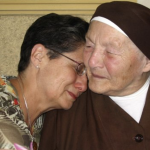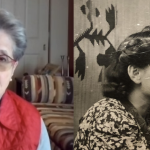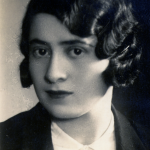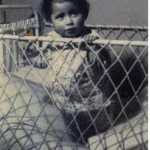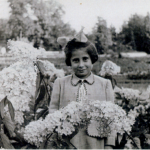Eva Kuper was born in Warsaw, Poland in 1940, into a world that had just been catapulted into war. Her parents were from Sandomierz, born into families with well-tempered expectations that had been shattered with the Nazi occupation. They ended up in the Warsaw Ghetto, where they endured the brutality and deprivation of the Shoah. Eva’s mother was deported to Treblinka where she was murdered alongside countless others, a fate that the infant Eva avoided because of the fortitude of her mother. In the care of her father, Eva was able to escape the ghetto because of his brave plan, and the assistance of people outside the ghetto. Through their pediatrician, he managed to place his daughter with Hanka Rembowska, a well-known children’s book illustrator. When she fell ill, Eva was placed into the care of Franciscan nuns, and she spent the rest of the war with them. After the war she was reunited with her father, but in Eva’s mind she was a Catholic, a deception that was only unmasked when the family – her father had remarried by then – emigrated to Canada in 1948. Some sixty years later Eva returned to Poland to learn more about her family and personal situation, and a genealogist in Warsaw was able to locate the convent that had saved her life, and miraculously she had met the very nun – Sister Klara Jaroszynska – who took that risk, surely a life-changing moment. Eva has since dedicated her post-retirement life to volunteering and Shoah education, and it was through the efforts of the Montreal Holocaust Museum that we were able to zoom with her during the pandemic spring of 2021.
Videos
Click next video below to keep watching
